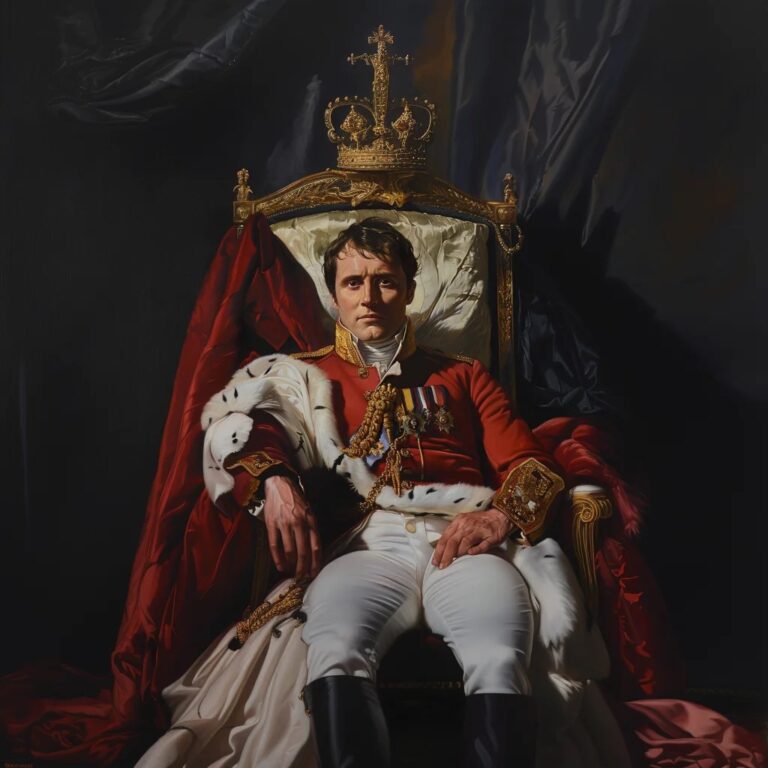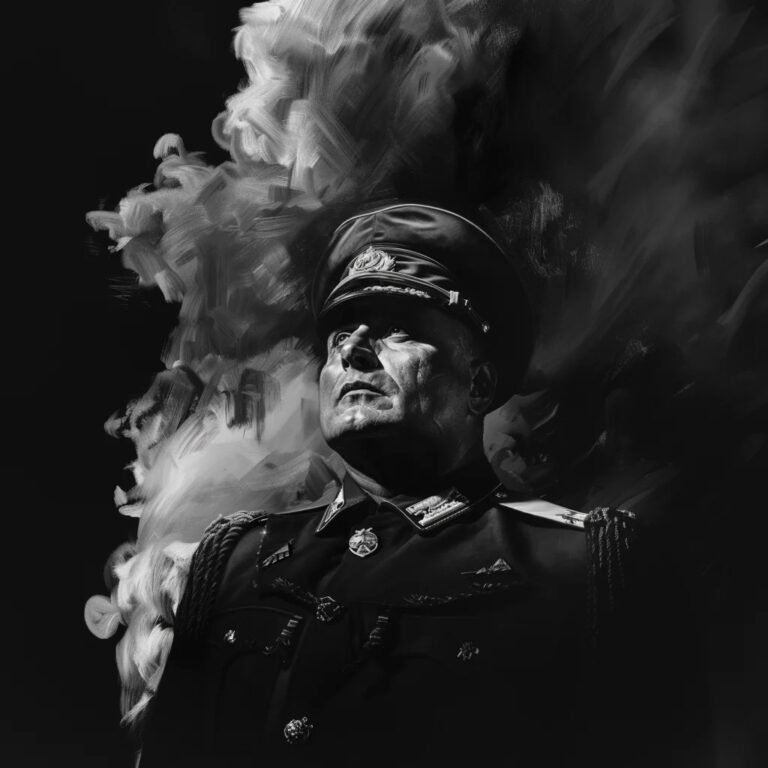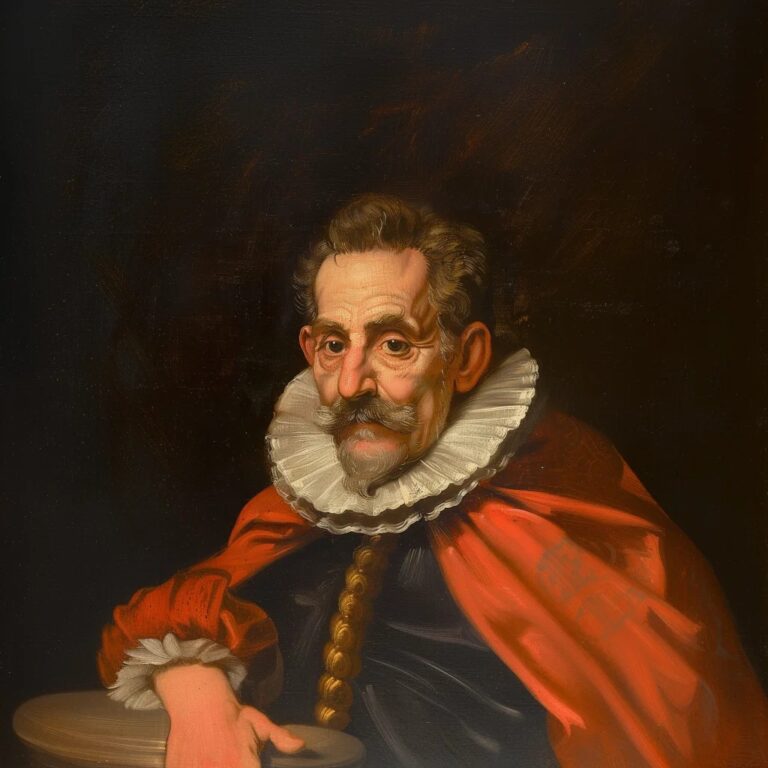Napoleon was born on August 15, 1769, on the island of Corsica.
He rose to prominence during the French Revolution.
Napoleon became Emperor of the French in 1804.
He is known for his role in the Napoleonic Wars and significant military victories.
Napoleon established the Napoleonic Code, a legal framework that influenced many modern legal systems.
His invasion of Russia in 1812 ended in a disastrous retreat.
Napoleon was exiled to the island of Elba in 1814 but escaped and returned to power for the Hundred Days.
He was finally defeated at the Battle of Waterloo in 1815 and exiled to Saint Helena.
Napoleon's reforms in education, law, and administration had a lasting impact on France and beyond.
He was known for his strategic brilliance and charismatic leadership.
Napoleon's height is often debated, but he was likely around 5'6" (1.68 m).
His marriage to Joséphine de Beauharnais ended in divorce due to her inability to produce an heir.
Napoleon's second wife, Marie Louise of Austria, bore him a son, Napoleon II.
He died on May 5, 1821, on the island of Saint Helena.
Napoleon's legacy continues to be studied and debated by historians.



